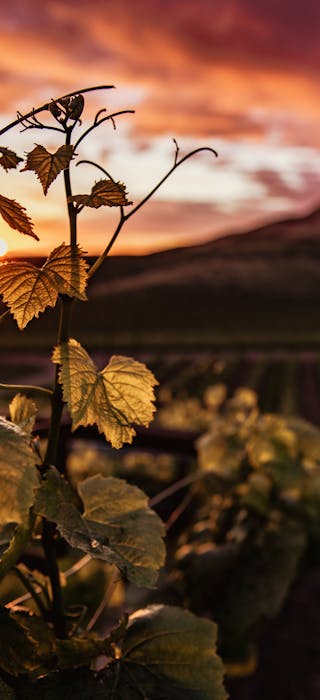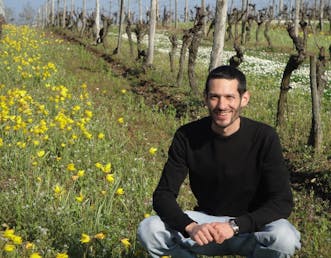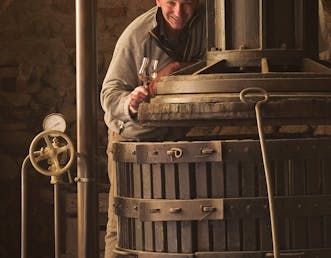Organic wine, or wine from organic farming, is made from phytosanitary means and plant, animal or mineral products. To be organic, it must be produced in compliance with all the rules of the specifications of the Organic Agriculture Label in France.
This code of conduct explains how to produce organic wine from grape production, through the grape harvest to vinification and bottling. It aims to preserve the environment and consumer health. For example, the use of pesticides is very strictly regulated: only pesticides from natural sources can be used in an organic wine estate. the switch to this method of cultivation must be made at the cost of a great deal of effort for the producer. a new solution must be found to combat certain diseases, he is no longer allowed to use certain chemical fertilisers. Producers must also know how to use the right products for soil treatments . All these changes do not have an immediate impact on the cleanliness of the vines, this is why the conversion to organic viticulture is a long process and the estate can only obtain certification 3 years after having started it ! Some winegrowers use other growing methods, sometimes in addition to the principles of organic agriculture, such as reasoned agriculture or Biodynamics (Label Demeter, Ecocert or Biodyvin). Natural wines, unlike biodynamic wines, do not meet precise specifications and their main characteristic is that they are made without any added sulphites, since the producer does not use any sulphur to stabilise the wine during vinification.
The characteristics of an ORGANIC wine when tasting it
It is difficult to come up with general rules on the impact of ORGANIC on wine tasting, because organic wines are as diverse as other wines. For red wines as well as white and rosé wines, it is nevertheless recognized that organic wines can offer you a different tasting experience than traditional wines. As the grapes are treated with more respect, the fruit is found in a purer way. They also often have less sugar. Organic farming generally allows for a more faithful transcription of the terroir that cannot be altered by the use of different chemicals.
The growing organic market
While organic farming is progressing throughout the world, its growth is particularly marked in France, where it has more than tripled in eight years. In fact, since the creation of the AB Label in 1985, the number of organic winegrowers has continued to increase in all French winegrowing regions, from Burgundy to Roussillon, Alsace, Bordeaux, the Rhône Valley and even in Champagne. In 2017, it is estimated that 8.7% of the French vineyard is composed of hectares cultivated organically. In addition, 16% of the vineyard is in the process of conversion. This concerns small estates as well as large estates... We can therefore find great organic wines (a great Bordeaux wine for example) as well as organic wines from small producers. On the consumer side, there is also a real awareness, which translates into a strong increase in demand for organic products. The Agence Bio estimates that in 2017, one wine consumer in three will consume organic wine. You too, take care of yourself and the environment and buy your bottle from our selection of 200 organic vineyards!


